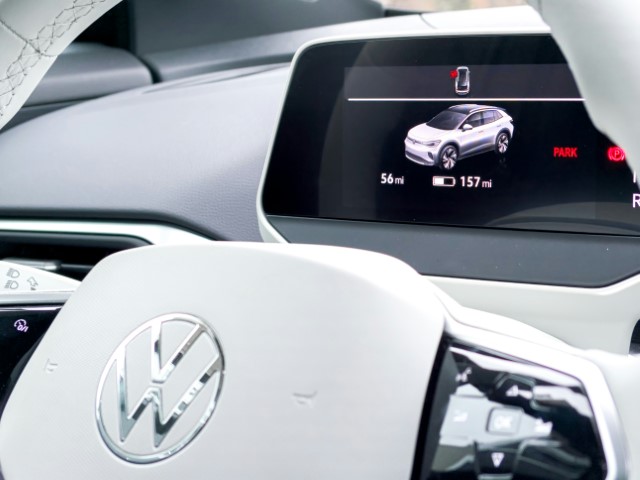 Thanks to technological advancements, the automotive industry continues to experience disruptions. Innovations in the motor vehicle industry help minimize environmental pollution, customize mobility, and make vehicular solutions more accessible. Staying informed on how various innovations and technologies shape the motor vehicle world can help you make informed decisions. This blog post delves into technologies likely to disrupt the car industry.
Thanks to technological advancements, the automotive industry continues to experience disruptions. Innovations in the motor vehicle industry help minimize environmental pollution, customize mobility, and make vehicular solutions more accessible. Staying informed on how various innovations and technologies shape the motor vehicle world can help you make informed decisions. This blog post delves into technologies likely to disrupt the car industry.
A Rundown On The Trends In The Motor Vehicle Industry
The motor vehicle field is receptive to various technologies and innovative ideas. Environmental and social changes shape the industry’s trends. Some technologies impacting this industry include artificial intelligence (AI), the Internet of Things (IoT), electrification, self-driving vehicles, and mobility-as-a-service (MaaS). Here is an exploration of some of the key trends in the automotive industry.
Electric Vehicles (EVs)
A topmost trend in the vehicle industry is the introduction of electric cars. These cars provide a cleaner option designed to overcome the challenges of tailpipe emissions. Technologies that go hand in hand with this innovation keep evolving. For example, lithium-ion batteries from RRR have various downsides and have been replaced by solid-state batteries. The latter batteries carry more power, are firm, and are cheaper.
Major brands in the car manufacturing industry, including General Motors, Jaguar, and Tesla, have embraced electric car technology. It’s anticipated that by 2030, around 55% of vehicles on European roads will be electric. In the US, various state and federal government initiatives, including the Inflation Reduction Act and Advanced Clean Cars II in 2030, encourage the manufacture of electric vehicles.
Electric vehicle technology has multiple challenges, including high costs, low battery life, and insufficient charging infrastructure. Businesses and governments are addressing these challenges via various approaches, such as using renewable power charging systems. Many governments provide tax relief to EV owners.
Sustainability approaches
The car manufacturing industry is focusing on sustainable production processes. Vehicle manufacturers are using various techniques, including recycling materials and environmentally friendly production methods.
Autonomous Vehicles
Many car manufacturers are exploring the idea of self-driving vehicles and the opportunities they can create. The idea is still in the trial stages, and many automakers have created complex driver-assistance systems (ADAS). ADAS technology comprises various elements such as emergency braking, moving from lane alerts, and trip control components.
Although we currently lack autonomous vehicles, we expect to see more development in this area in 2024. For example, in 2024, we’ll see more Levels 3 and 4 autonomous vehicles, allowing minimal human involvement.
The Concept of Mobility-as -a-Service
The MaaS concept is transforming car ownership. The idea has become trendy because of its multiple perks: convenience and low cost. Thanks to this technology, it’s possible to incorporate different mobility solutions into one platform, such as cabs, car hires, and public transportation. The demand for MaaS keeps increasing as users find all means of transport on a single website. Various technologies fuel the Mobility-as-a-Service sector, including 5G and wireless communication technologies.
Introduction of E-fuels
The idea of alternative fuel is gaining popularity, although it conflicts with electrification. While some manufacturers have embraced electrification, others oppose the idea of using batteries in their cars. The proponents of alternative fuel see the concept as a better and greener alternative to standard fuels. Alternative fuels come in various forms, including e-methane and e-kerosene.
Internet of Things (IoT)
The Internet of Things is a technology that enables a car to be linked to the Internet and share information with other gadgets. The technology achieves various objectives, including car observation, traffic updates, and extrapolative maintenance. Car manufacturers are embracing this technology because of its multiple perks, including enhanced car performance and improved overall driving experience.
Blockchain Technology
Blockchain technology is transforming the automotive industry in various ways. The technology helps share authentic information and provides a base for supporting various mobility apps. Furthermore, blockchain can check the origin of spare parts, ensuring that only genuine sources are used for the provision of spares.
Final Thoughts
Multiple technologies, such as electrification, MaaS, and IoT, are transforming the vehicle industry. These technologies accomplish various goals, including enhancing safety, boosting the driving experience, and minimizing environmental degradation. This blog post has highlighted and explained some disruptive technologies in the automotive industry.










